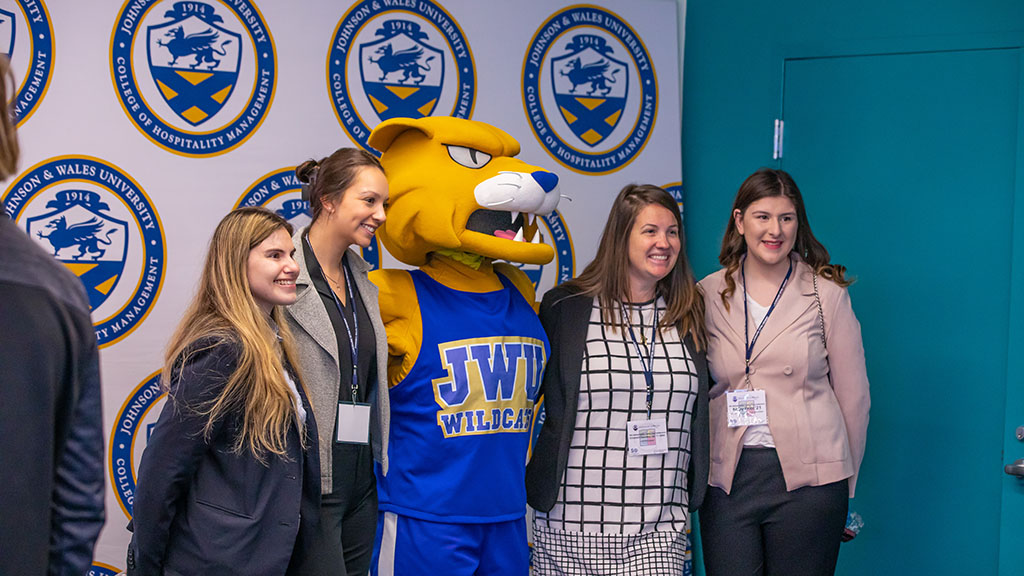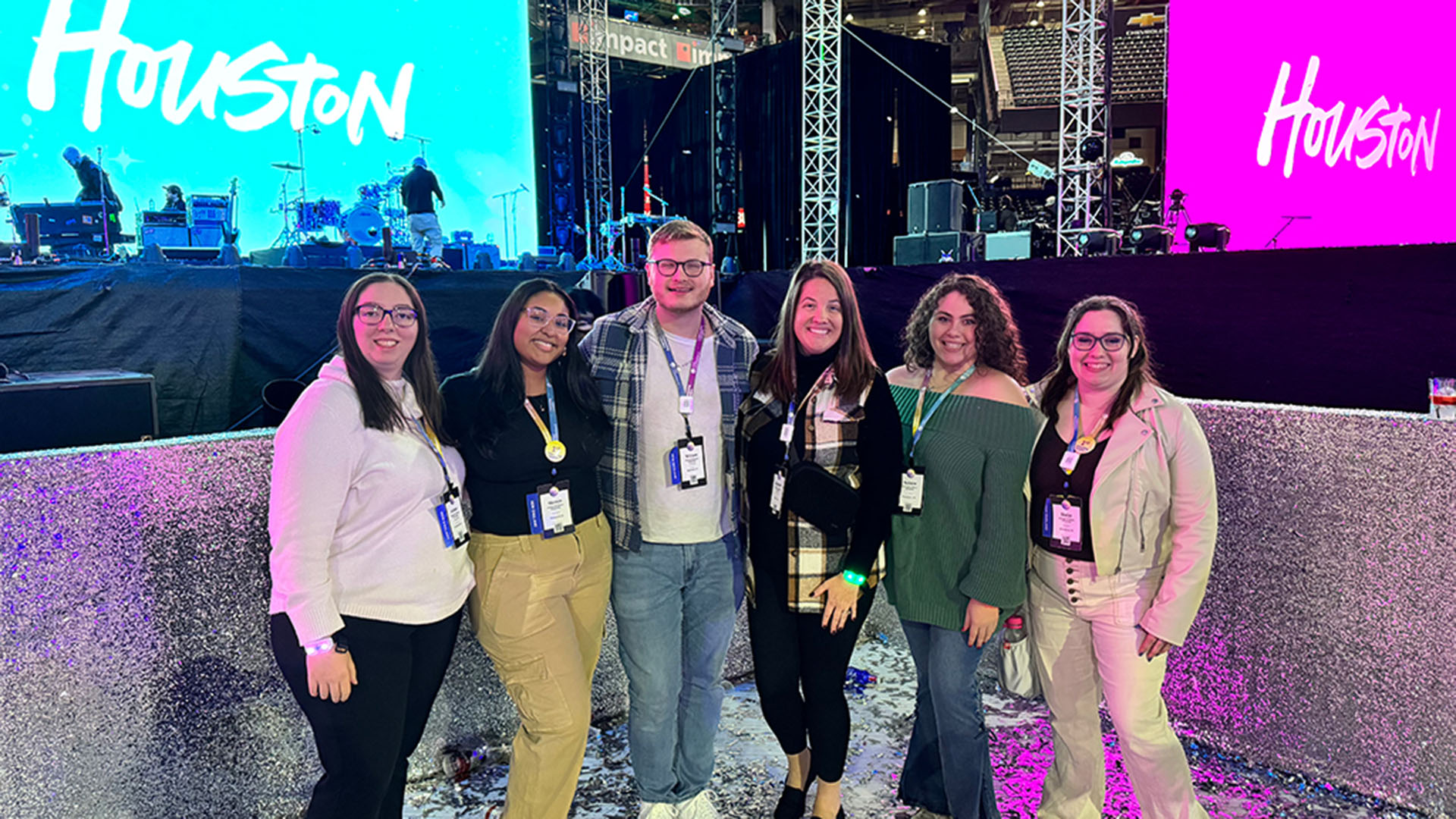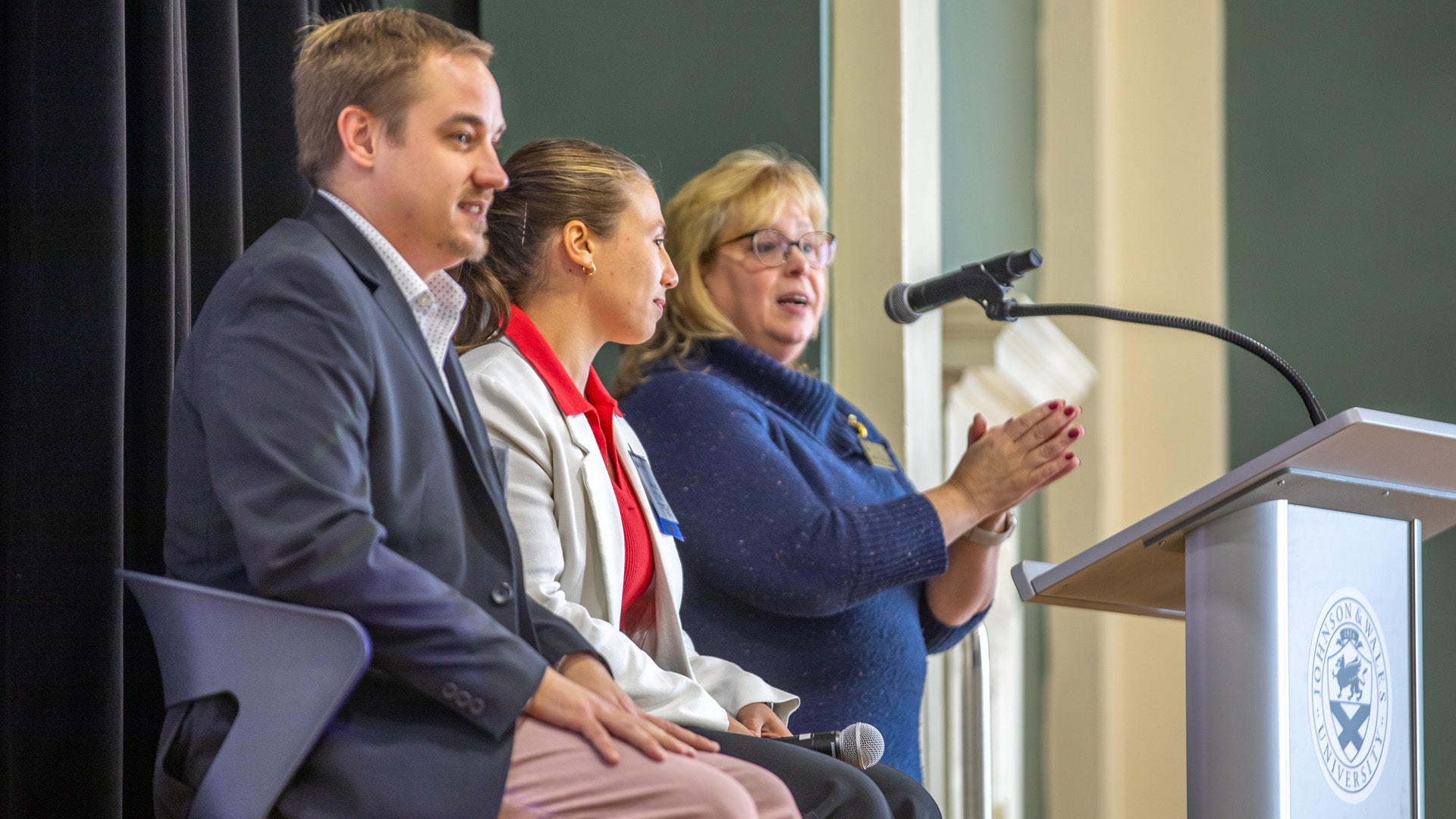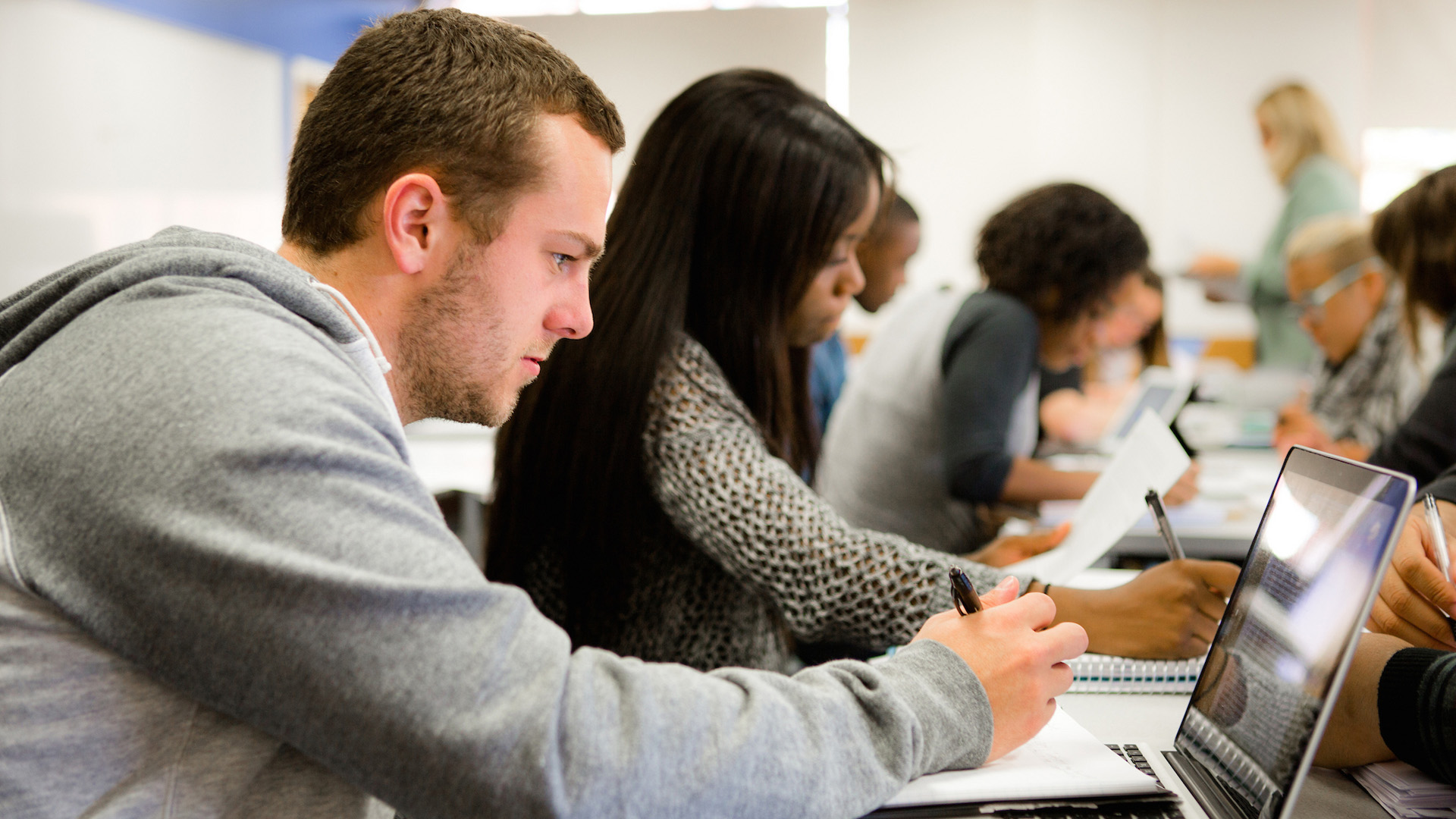Hospitality Professor Elizabeth Panciera Propels Students Forward
Author Miranda Hasani '25 is a Sports, Entertainment, Event — Management major and works as a student assistant at JWU, contributing to JWU News.
Professor Elizabeth Panciera ’09, ’11 MBA, CHE is a professor in the Sports, Entertainment, Event — Management (SEEM) program at Johnson & Wales University and has served the JWU community for 13 years.
As someone who has fallen in love with the SEEM program, I can with full certainty say that it is because of professors such as Panciera who put in the work, dedication and show genuine care for their students personally and professionally that make the program so special. Professors like her allow students like me to thrive.
Professor Panciera recently led students in the College of Hospitality Management to the Professional Convention Management Association (PCMA) conference in Houston, Texas this past January and brought back even more insight into what the industry holds.
I have taken several classes with Professor Panciera, so I was excited to talk with her about her experiences, recent successes and how she continues to put in the work for her students.
What brought you to JWU?
I am a proud alum of the SEEM program and wanted to close the gap between industry and education that I saw as a young alum in the industry.
Did you work in the industry before you started teaching? If so, what did you do?
I have had versatile experiences that I derived out of my degree in the SEEM program after graduating. From experiences in the sports world to booking entertainment for events, the core of my experience comes from the corporate event world. I've worked most recently for a destination management company, representing clients in multiple sectors, from nonprofit to for-profit, and then also worked in like large-scale pharmaceuticals, for sports teams, fast food chains — you name it. I think my background is very similar to our degree in that you can take it in many different directions.
What are your favorite classes to teach?
I enjoy all the different courses that I teach, but I am especially connected to the courses that have an experiential component built into them. I oversee Directed Experiential Education (DEE) and other experiential courses that allow students to take what they learn in classes and use it in practice. I oversee the SEEM Leadership Conference DEE, where students plan and produce a conference with industry professionals in their respective industries, and an International Exhibitions & Events course, where students plan and produce a trade show with exhibitors of organizations in their industry. These are both fun and informative for students. Oftentimes I have students who take both of these DEEs, so they get to see how there is a crossover of content, but that they're still a little bit different. I especially love that the experiential education built into these courses requires a final deliverable to be presented to clients, and how students are held to the standard of what is done in the industry.

Can you tell me about the Professional Convention Management Association (PCMA) and what your role is in that organization?
It's a very powerful international association for suppliers, vendors and planners to come together and collaborate, share experiences and do business together. The organization is split into regional chapters that meet regularly, but it is also a global organization where chapters can collaborate in a mega platform. I currently sit as the faculty advisor for the Johnson & Wales chapter of the PCMA.
The student chapter of PCMA and myself were able to attend this year’s Convening Leaders Conference in Houston, Texas and learn about what is currently happening in the events world. I hadn't traveled that far for that long with students before, so it was a re-energizing experience for me.
What did students get to do at the conference? How did this experience benefit them?
My students and I were able to attend different sessions and meet as a group post conference to discuss the takeaways that they had from each session. There's about five or six different sessions running at any given time, and you want to be at multiple ones, so it was really great for us to divide and conquer and then share our perspectives and experiences. It was amazing for me as a faculty and as an industry professional to see the energy and excitement that students were having while we were there and that is what continues to motivate me.
I participated in a General Session of Predictions for 2025, which was fun to have someone who looks at hard data on what we can expect for 2025 not only in the political landscape, but the financial landscape, trends with technology and things like that. I was able to attend an AI- powered brainstorming and idea discovery conversation. That's going to be one of the biggest takeaways with its surgency — how it will be utilized in the most effective legal way. I absolutely loved that there was a session that offered automated external defibrillator (AED) certification, which is something that the industry is really pushing for — planners to have these additional certifications. There were more unique conversations about budget efficiency and mistakes made in the industry that professionals were very forthcoming and honest about. My students were able to attend these types of panels and discussions and gain this insight as well.
From my own experience as a traditional attendee and even looking back to my experiences as a young professional, attending a conference individually can be very isolating and overwhelming, but students got to experience this conference with their peers and the support of their faculty advisor. I didn't really think of my students as students. I thought of them as industry professionals, and we went together as partners.
Did students have to pay to attend this conference?
Fortunately, we were able to utilize our connections derived from networking and being part of different organizations to fund this trip going forward. We have a very involved PCMA New England chapter that is very supportive of students and faculty who want to be involved. I personally applied for a faculty scholarship through PCMA, their global organization, and I received one of them. That fortunately took away a financial burden of me going. The student chapter also applied for scholarships, entered contests to try to secure funding, and worked with local companies and organizations for sponsorships. Through these methods, the students who are part of PCMA were able to secure a sponsor outside of the university from GoProvidence and MeetBoston, which closed the financial gap between university support and remaining costs for everyone to be able to go.
What do you do to stay on top of current trends in the industry and bring opportunities to students?
I like attending conferences, getting involved with associations and staying connected to the industry professionals that I've met through those associations. The associations that I collaborate with are eager to work with students. Through the support of these fostered relationships, I have been able to bring job opportunities to students as well as valuable resources. I have found that networking with industry professionals and passing information that I learn from them to my students has been very valuable.
What is something you want your present and future students to know about you?
I genuinely care. I just want my students to be as successful as they want to be. I want to keep showing up for my students. I want them to get where they want to be.


